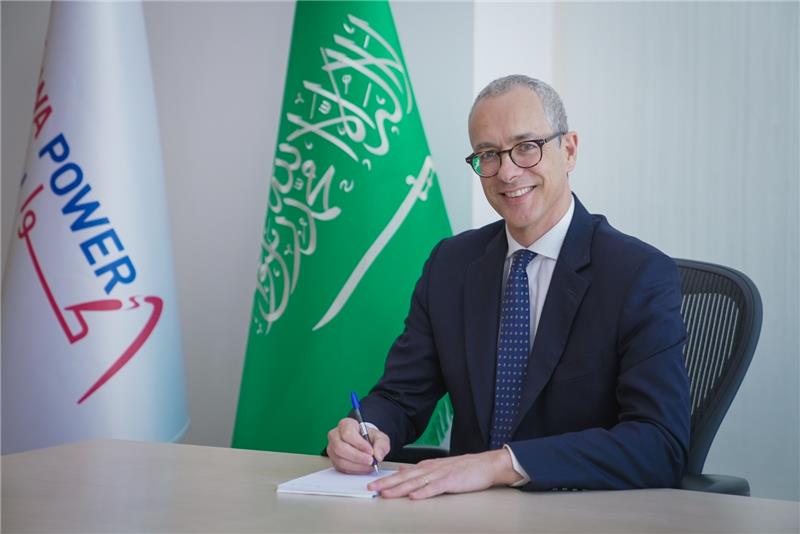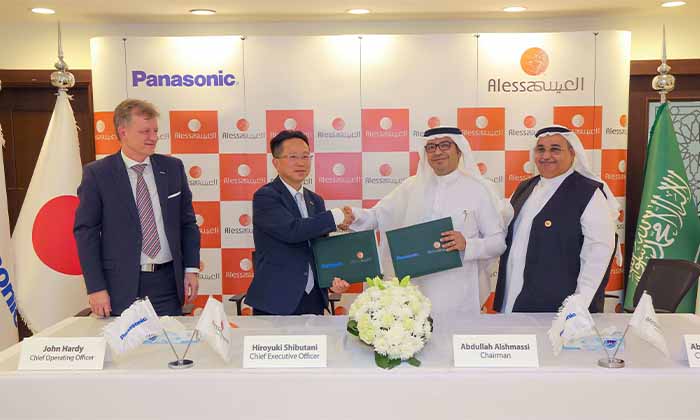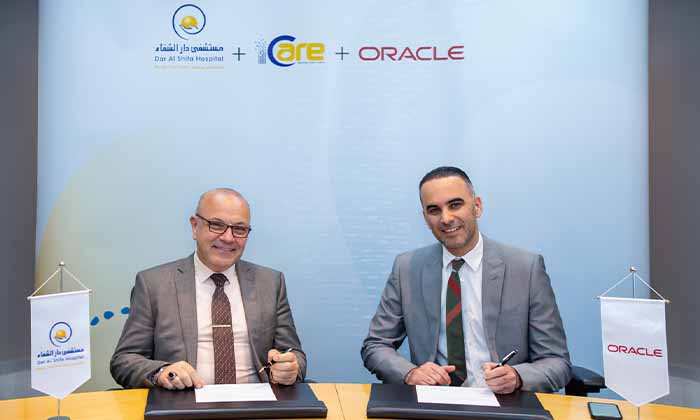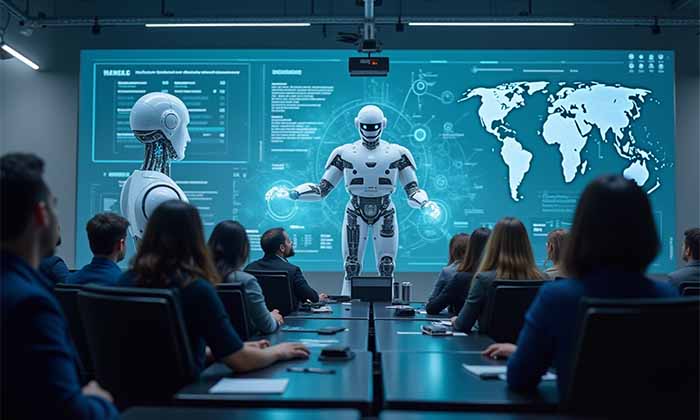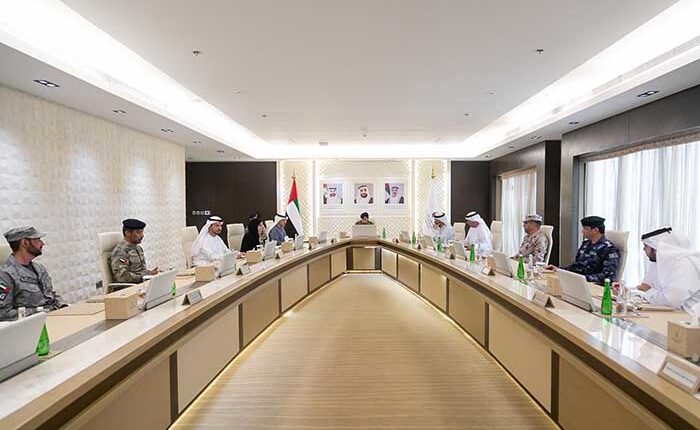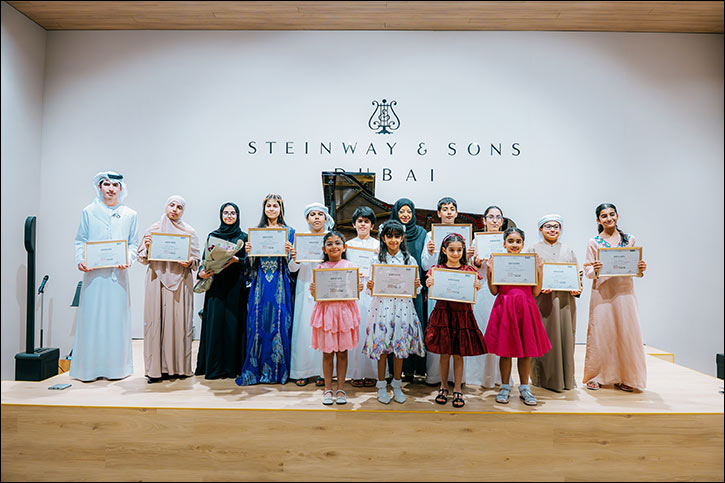- UAE Ministry of Industry and Advanced Technology to implement Smart Industry Readiness Index for the country’s industrial sector
- UNGA President calls on developed countries to invest in climate-friendly technologies and digital infrastructure to kickstart an equitable recovery
- Women technology leaders highlight the importance of STEM education in levelling the playing field for gender equality in a future workforce

Dubai, United Arab Emirates: The UAE’s industrial sector was in the spotlight on the second day of the Global Manufacturing and Industrialisation Summit (#GMIS2021) that also examined the latest global trends in advanced technologies that help build resilient economies.
Co-chaired by the UAE Ministry of Industry and Advanced Technology and the United Nations Industrial Development Organization, the Summit explored the role of data and connectivity in shaping the future of supply chains, green manufacturing, sustainable energy, and climate action.
H.E. Omar Suwaina Al Suwaidi, Undersecretary of the UAE Ministry of Industry and Advanced Technology, opened the day with the announcement that the Ministry will adopt the Smart Industry Readiness Index (SIRI), the global standard used by the World Economic Forum (WEF) to assess digital maturity, for the UAE’s industrial sector.
His remarks were followed by keynotes from H.E. Dr. Alexander Van der Bellen, President of the Republic of Austria, who joined the Summit virtually,and H.E. Cham Prasidh, Minister of Industry, Science, Technology and Innovation of Cambodia, who delivered the speech on behalf of the country’s Prime Minister.
H.E. Karine Elharrar, Minister of Energy of Israel, kicked off the first panel discussion of the morning, entitled ‘The Twin Transition: Where innovation, technology and sustainability meet’. In her keynote speech, she highlighted a new collaborative water and energy project between the UAE, Israel, and Jordan as a prime example of a cross-border innovation partnership that contributes to decarbonising the energy sector and thus mitigating the climate crisis. Moderated by Danny Sebright, President of the U.S. – U.A.E. Business Council, the session analysed the concept of the twin transition – green and digital – and its role in driving sustainable development. Panellists included Professor Alice Gast, President of Imperial College London, Musabbeh Al Kaabi, CEO of UAE Investments at Mubadala, Steven Kiefer, SVP and President of General Motors South America and International Operations, and Saideep Raj, Global Innovation Lead at Accenture.
H.E. Abdulla Shahid, President of the United Nations General Assembly (UNGA), delivered a virtual keynote at the panel discussion on ‘Government of the future: A new roadmap to global prosperity’, where he called on developed countries to invest in climate-friendly technologies and digital infrastructure to kickstart an equitable COVID-19 recovery. H.E. Dr. Saara Kuugongelwa-Amadhila, Prime Minister of Namibia, H.E. Matteo Renzi, former Prime Minister of Italy, and H.E. Dominique de Villepin, former Prime Minister of France, discussed the surprising positive impact of the pandemic as an accelerator of the digital transformation. They concluded that governments of the future are digital governments, and it is their duty to ensure no one gets left behind.
A keynote speech by H.E. Mohamed Abdelhameed Al Askar, Director General of Abu Dhabi Digital Authority (ADDA), preceded a panel discussion entitled ‘Artificial Intelligence & Robotics: Machine conquers human?’ that brought together advanced technology experts to discuss the future of humankind in an AI-powered world. Among the participants were Dr. Susanne Bieller, General Secretary of the International Federation of Robotics (IFR), Behshad Behzadi, VP of Engineering at Google, Chip Pankow, Chief Championship Officer at Roborace, Prof. Eric Xing, President of the Mohamed bin Zayed University of Artificial Intelligence, and Dr. Howie Choset, Professor of Robotics, Biomedical Engineering, and Electrical & Computer Engineering at Carnegie Mellon University, who joined the panel virtually. The panellists examined the boundaries between humans and machines, reviewed the progress of robotics application in diverse sectors, and discussed ethical concerns related to the increasingly widespread use of AI.
In a panel discussion on ‘Women in leadership: Levelling the field’, a group of women technology leaders highlighted the role of science, technology, engineering, and mathematics (STEM) education in levelling the playing field for gender equality in a future workforce, and agreed that talent has no gender. H.E. Hon. Dr. Sekai Nzenza, Minister of Industry and Commerce of Zimbabwe, delivered a keynote speech, where she credited access to education for shaping her leadership capabilities. Participants included Fatema Al Nuaimi, CEO of Abu Dhabi National Oil Company Liquified Natural Gas; Ayumi Moore Aoki, Founder and CEO of Women in Tech; Chiara Corazza, Special Representative to the G7 and G20 at the Women’s Forum for the Economy & Society; Tiffany Kelly, Founder and CEO of Beyond Bamboo; and Jan Ward, CEO of Corrotherm.
A keynote speech by H.E. Abdulkarim Taqi, Director-General of Kuwait’s Public Authority for Industry (PAI), followed the session.
With a special emphasis on the Summit’s host country, a dedicated panel discussion explored how the UAE’s National Strategy for Industry and Advanced Technology, ‘Operation 300Bn’, aims to drive the development of a diversified industrial economy in the country over the next 30 years. The strategy stems from an integrated vision of the UAE Ministry of Technology and Advanced Technology to strengthen the UAE’s industrial sector and establish the country as a global hub for future industries. Panellists included H.E. Abdallah Al Shamsi, Assistant Undersecretary for the Industrial Growth Sector at the UAE Ministry of Technology and Advanced Technology; H.E. Eng. Saeed Ghumran Al Remeithi, CEO of Emirates Steel; Abdulnasser Bin Kalban, CEO of Emirates Global Aluminium (EGA); Khaleefa Yousef Al Mheiri, Acting CEO of TA’ZIZ; Ahmed Mohamed Al Naqbi, CEO of Emirates Development Bank; and Saud Abu Al-Shawareb, Managing Director of Dubai Industrial City.
Other sessions focused on dark and smart factories, health and safety in a cyber-physical environment, digital mobility and remote work, quantum machine learning (QML), 5G and cloud, Industrial Internet of Things (IIoT) and digital twins, and blue economy.
The second day of #GMIS2021 also featured the announcements of the GMIS 2021 Legacy Initiative, known as ‘The Global Biomedical and Industrial Centre’ in partnership with the UAE Ministry of Technology and Advanced Technology and the United Nations Industrial Organization. Based in the UAE, the Centre will ground itself as a leader in disruptive manufacturing in the bio life sciences sector, attract multi-stakeholder efforts to develop cutting-edge innovations, products, and solutions to predict and prevent future pandemics and epidemics, and enact world-class inclusive approaches to healthcare.
‘The Global Initiative for Future Industrial Safety’ was also announced today, during a press conference that gathered partners of the Initiative, namely Lloyd’s Register Foundation, United Nations Industrial Organization and the Global Manufacturing and Industrialisation Summit. The Global Initiative for Future Industrial Safety will act as an international forum to tackle the safety challenges of emerging technologies, fill gaps in safety-related standards, open up the industrial landscape, ultimately gathering new insights for business leaders and policy makers.
The closing ceremony, moderated by Simin Yazdgerdi Curtis, President, CEO and Founder of the American Middle East Institute (AMEI), witnessed the launch of GMIS America, announced by Namir Hourani, Managing Director of GMIS. The inaugural edition of the annual event will take place in 2022 in Pittsburgh as a homage to a city that has rebounded from significant industrial challenges. The announcement was followed by keynote speeches from Diane Farrell, Acting Undersecretary for International Trade at the US Department of Commerce, and Thomas Wolf, Governor of Pennsylvania. The session wrapped up with a panel discussion between Michael Lordi, CEO of Elliott Group – a Pennsylvania-based turbomachinery company, Petra Mitchell, President and CEO of Catalyst Connection and Board Member of the Advanced Robotics in Manufacturing (ARM) Institute, and Danny Sebright President of the US-UAE Business Council. Bill Flanagan, Chief Corporate Relations Officer at the Allegheny Conference on Community Development, and Audrey Russo, President and CEO of the Pittsburgh Technology Council, joined the panel virtually.
#GMIS2021 was part of the six-day GMIS Week that runs from 22 to 27 November. The GMIS Week includes the Global Prosperity Conference and the Green Chain Conference exploring alternative and renewable energy on 24 November, and country-focused conferences in partnership with the UK, Australia, and Italy on 24 and 25 November. Throughout the week, the Summit is also running an exhibition to highlight the UAE government’s ‘Make it in the Emirates’ campaign, a first-of-its-kind initiative to encourage local and international investors, developers and innovators to benefit from the facilities and incentives offered by the country’s industrial sector.
About GMIS:
The Global Manufacturing and Industrialisation Summit (GMIS) was established in 2015 to build bridges between manufacturers, governments and NGOs, technologists, and investors in harnessing the Fourth Industrial Revolution’s (4IR) transformation of manufacturing to enable the regeneration of the global economy. A joint initiative by the United Arab Emirates and the United Nations Industrial Development Organisation (UNIDO), GMIS is a global platform that presents stakeholders with an opportunity to shape the future of the manufacturing sector and contribute towards global good by advancing some of the United Nations Sustainable Development Goals.
The first two editions of the Global Manufacturing and Industrialisation Summit were held in Abu Dhabi, United Arab Emirates in March 2017, and Yekaterinburg, Russia in July 2019, respectively, with each edition welcoming over 3,000 high-level delegates from over 40 countries. The third edition, GMIS2020, was held virtually in September 2020 and convened over 10,000 attendees and close to 100 thought-provoking leaders from governments, businesses, and civil society.
#GMIS2021, the fourth edition of the Global Manufacturing and Industrialisation Summit, will be held once again in the United Arab Emirates from November 22 to 27, alongside EXPO Dubai, under the theme – Rewiring Societies: Repurposing Digitalisation for Prosperity.
